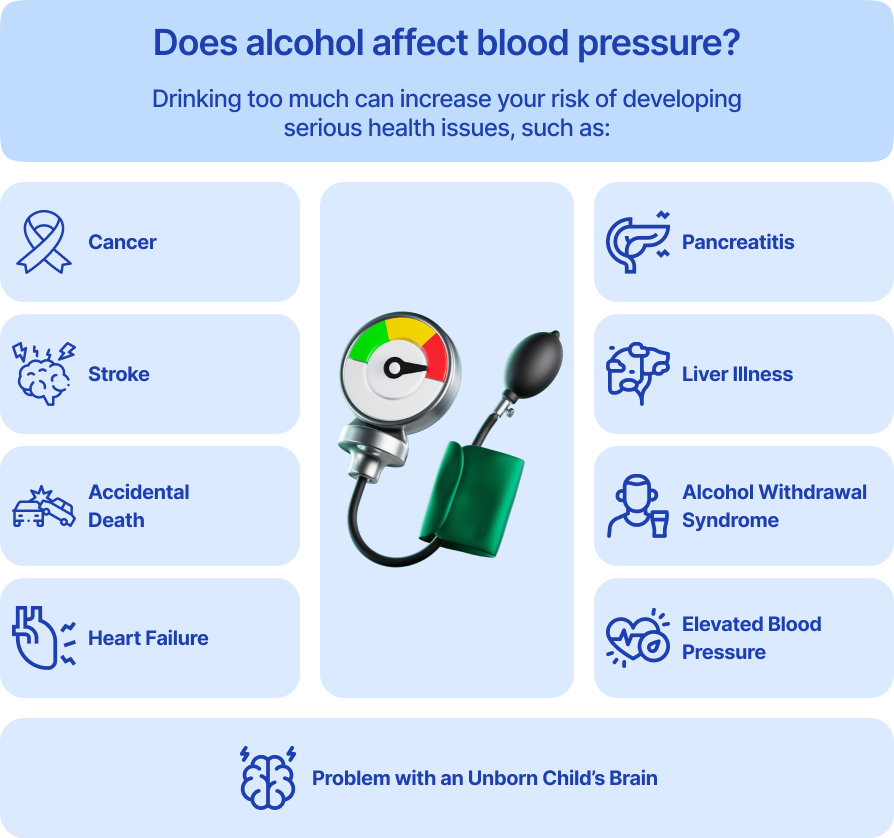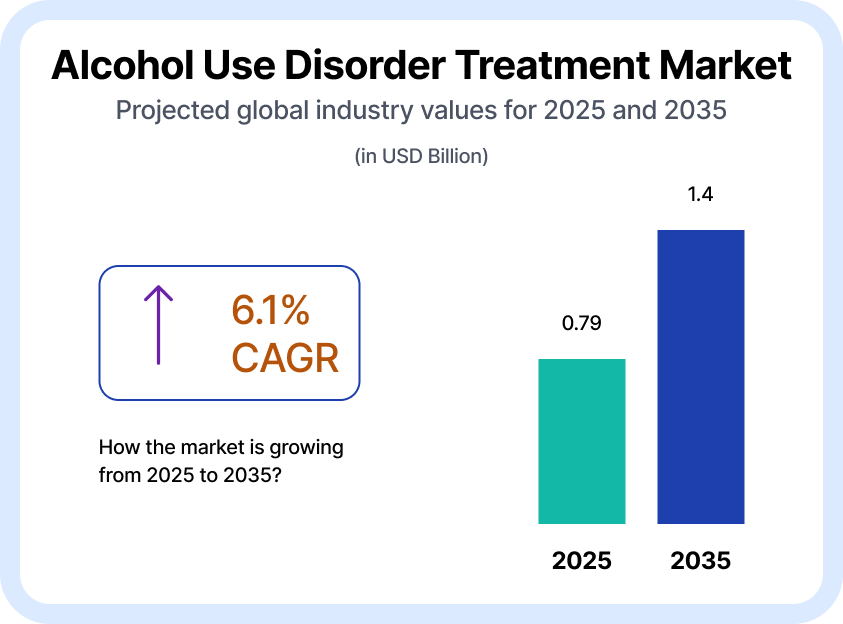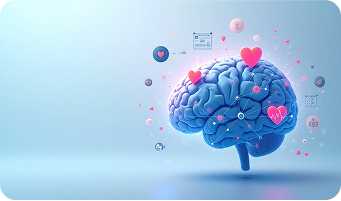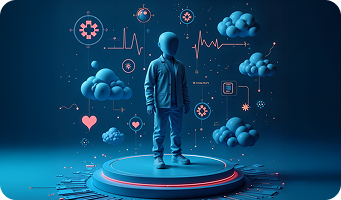Alcohol and Heart Health: The Rise of AI in Addiction Treatment

Alcohol may feel like a common part of everyday life. It’s found in social gatherings, celebrations, and even as a way to relax after a long day. Apart from the cultural acceptance, alcohol can quietly and consistently damage the heart. The long-term effects of alcohol use like a rise in blood pressure and risk of heart failure are serious. When drinking becomes excessive or an addiction causes Alcohol Use Disorder (AUD), a condition that impacts not just the body, but also mental and emotional well-being.
The good news? Technology advances in Artificial Intelligence (AI) and wearable health tech bring an era of early detection, personalized support, and preventive care. This blog post takes a close look at how alcohol affects heart health and how AI is offering new hope in addiction treatment.
How Much Alcohol is Too Much for Your Heart?
There’s been a long-standing belief that moderate drinking, especially red wine, might be good for the heart. Some studies have shown benefits like slightly higher levels of HDL ("good") cholesterol. But recent research says the risks far outweigh any minor benefits. Even small amounts of alcohol can raise your blood pressure, trigger inflammation, and disrupt normal heart rhythms.
The World Health Organization now says there’s no safe level of alcohol use. Regular consumption in small amounts can quietly cause damage. Heavy drinking increases the risk of conditions like:
- High blood pressure
- Cardiomyopathy (weakened heart muscle)
- Arrhythmias (irregular heartbeats)
- Sudden cardiac death
The effects are especially severe when alcohol use is consistent over months or years.
Medical Advice: What’s Safe for Alcohol?
Doctors increasingly advise avoiding alcohol altogether, especially for those with heart conditions, high blood pressure, or diabetes. If you do drink, the key is moderation:
- No more than 1 drink per day for women
- No more than 2 drinks per day for men
- Avoid binge drinking (4+ drinks in 2 hours for women, 5+ for men)
Binge drinking can cause dangerous spikes in heart rate and blood pressure. Even occasional overuse can trigger arrhythmias or strokes.
Alcohol and Surgery: A Risky Combination
Before any surgery, especially involving the heart, doctors want to know about your alcohol use. That’s because alcohol interferes with how your body responds to anesthesia and stress. It can increase the risk of infection, delay healing, and raise the chance of complications like abnormal heart rhythms during and after the procedure.
Health experts recommend reducing or stopping alcohol intake several weeks before surgery to improve recovery outcomes. Patients who drink heavily have a higher likelihood of post-surgical problems, and understanding alcohol’s impact can help healthcare providers better prepare and monitor the patient.
How Alcohol Slowly Damages the Heart?
Alcohol might not seem dangerous at first. But even without obvious symptoms, it can gradually harm your cardiovascular system. Here’s how:
- Raises blood pressure: Alcohol tightens blood vessels, forcing the heart to pump harder.
- Disrupts heart rhythm: It interferes with the electrical signals that regulate your heartbeat.
- Elevates triglycerides: Alcohol raises levels of unhealthy fats in the blood, leading to artery blockages.
- Weakens heart muscle: Over time, the constant strain can lead to cardiomyopathy.
The effect? Higher risk of heart attacks, strokes, and heart failure.
Alcohol’s Link to High Blood Pressure

Alcohol is a known contributor to long-term high blood pressure. It acts on multiple systems in the body:
- Constriction of blood vessels
- Increased fluid in the bloodstream
- Surge in stress hormones like cortisol
All of these put extra strain on the cardiovascular system, increasing the risk of heart and kidney damage. Studies show that people who drink regularly are more likely to develop hypertension, especially if they have other risk factors like poor diet or a sedentary lifestyle.
Did You Know About Alcohol Use Disorder (AUD)?
AUD is a chronic brain condition where a person is unable to stop or control their drinking despite negative consequences. It usually develops over time:
Stage 1: Occasional social drinking
Stage 2: Increased reliance on stress relief or sleep
Stage 3: Tolerance and dependence
Eventually, alcohol becomes a coping mechanism, and quitting can cause withdrawal symptoms like anxiety, nausea, and tremors. AUD often affects emotional health, family life, and work performance.
What Actually Triggers Alcohol Addiction?
Common triggers that lead to alcohol misuse include:
- Chronic stress
- Trauma or mental health issues (depression, anxiety)
- Social pressure
- Family history of addiction
- Lack of support systems
Once alcohol becomes a primary coping tool, it becomes difficult to stop without external help. This is why early intervention and support matter.
The Impact of Alcohol Addiction on the Heart
Alcohol addiction does more than harm the liver—it deeply affects cardiovascular health:
- Increases the risk of atrial fibrillation
- Weakens the heart muscle (dilated cardiomyopathy)
- Leads to persistent hypertension
- Raises the risk of stroke and sudden cardiac death
Addiction also leads to irregular self-care. People may neglect medication, skip doctor visits, or eat unhealthy diets, worsening their heart condition.
How AI Is Changing Addiction Treatment?

Traditional addiction care often focuses on in-person therapy, rehab programs, or support groups. But AI is now making care more proactive, personal, and accessible. Here’s how:
- Early detection:AI analyzes speech, behavior, sleep patterns, and social activity to detect signs of addiction.
- Continuous monitoring:AI-powered Wearable devices track heart rate, stress, and sleep to spot early warning signs of relapse.
- Personalized support:Apps use machine learning to offer tips, reminders, and interventions tailored to the user’s needs.
AI systems help intervene before a person hits a crisis point, offering care that's always on and always adapting.
Examples of AI Tools Supporting Recovery
Some real-world solutions already helping with alcohol addiction include:
- Sober Grid:A peer support app with AI-driven relapse prediction.
- Vorvida:An interactive coaching platform that offers cognitive behavioral tools.
- RecoveryAI:Uses behavioral data to alert care teams of early relapse signs.
- CleverCare:Monitors vitals and mood data from wearables to optimize treatment.
These tools provide support anytime, anywhere—especially useful for people who live in remote areas or want privacy.
AI Brings More Inclusive and Fair Health Care
AI also helps make treatment more inclusive:
- Smart matching:Platforms match patients with culturally appropriate therapists
- Bias reduction:Tools like Textio and Pymetrics help clinics identify and fix inequalities in hiring and care
- Language support:AI tools can offer multilingual therapy or resources, broadening access for underserved populations
Means more people get the kind of care that fits their background, preferences, and values.
Bringing AI into Clinics and Wellness Programs
Healthcare providers can start integrating AI by:
- Using screening tools that flag early warning signs of addiction
- Adding wearable devices to monitor stress and heart health
- Offering digital support apps that provide 24/7 care
- Training staff with AI to personalize treatment plans
These steps not only improve recovery outcomes but also help prevent irreversible damage to the heart.
Protecting Heart Health by Addressing Alcohol Early!
Alcohol may feel like a small part of life, but its effects on the heart are anything but small. Over time, drinking can raise blood pressure, cause heart rhythm issues, and lead to heart failure. But we’re no longer limited to traditional care models.
Helius Wellness believes in catching problems early and empowering patients through smart, tech-driven care. AI tools and wearable devices are bringing prevention and recovery into everyday life, helping people survive and thrive.
The future of heart health starts with early intervention, and the power of AI is making that future a reality.
Popular Blogs

Agentic AI-Driven Healthcare Revolution
Agentic AI in healthcare for personalised care and real-time decisions.

Artificial Intelligence in Healthcare: A New Approach t...
Chronic disease care with AI wearables, remote monitoring, and more.

AI and Hallucinations in Healthcare Field: A New Fronti...
Know how AI supports the detection and treatment of hallucinations.
